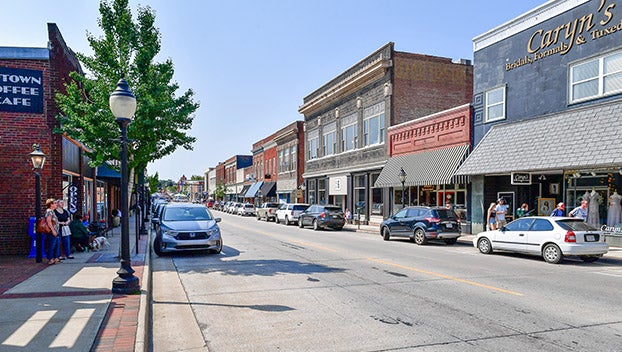The new college experience: self-isolation and distraction
Published 6:00 am Saturday, October 3, 2020
|
Getting your Trinity Audio player ready...
|
By Hunter Britt
Capital News Service
Social isolation due to the coronavirus has become a stressor for many college students across Virginia who report that studying is more difficult and their mental health is suffering.
Trending
Shane Emory, a senior broadcast journalism major at Virginia Commonwealth University in Richmond, says he is experiencing this firsthand. While the dorms are quieter overall, there is very little opportunity to escape distractions. Emory says his guitar and television are the top two things that draw him away from work.
Since the pandemic swept the nation, altered routines have become the new normal. Students who usually study in the library say that is no longer an option to consider lightly. Many students say the best option is to stay put and endure distractions and loneliness rather than risk contracting the virus or unknowingly endangering someone else.
Camryn Nesmith, a junior nursing major at Liberty University in Lynchburg, says that increased social isolation has taken a toll on her concentration and mental well-being. She also says that it is difficult to escape from loud noises and distractions in her dorm.
“There has been an effect on my school work because I don’t do well doing schoolwork in my dorm. I need to be in the library or somewhere like that,” she says. “I try to get my work done early in the morning when it’s quiet.”
Nesmith feels that Liberty prioritizes the safety of its students and that there are always people enforcing the rules and making sure everyone wears a mask. The university is currently reporting 184 total cases since Sept. 2. Almost 490 on-campus students are currently quarantined, along with 492 commuters and 139 employees.
Marian Woodington, a sophomore vocal music education major at James Madison University in Harrisonburg, says via email that she initially attended in-person classes, albeit reluctantly. Cases quickly spiked at the Harrisonburg-based university, hitting more than 500 the first week classes resumed.
Trending
“I did feel reluctant because, since there were not harsh regulations, anyone could have sat in the seat that I chose, and they could be sick,” she says. “The rooms were only cleaned at certain times throughout the day and you never know what someone else has touched when walking into a building.”
JMU classes were moved online about a week after starting after consultation with the Virginia Department of Health. As of Friday, the university has reported almost 1,400 total coronavirus cases since Aug. 17.
The pandemic has caused a significant mental health impact on students. More students are using VCU support services, according to Jihad Aziz, the interim executive director of VCU University Counseling Services. Students who have sought counseling this semester raise many concerns such as worry over family members and the fear of contracting the coronavirus, Aziz said in an email. The office has implemented some new methods in response, such as offering support groups for students that meet weekly over Zoom.
“We know that students are seeking connection and it’s important that they know that they are not alone during these difficult times,” Aziz says. “We have support groups specifically for students of color, those with chronic health issues, health professional students, and a few others.”
VCU initially experienced a spike in cases when a cluster of 44 positive cases connected to VCU athletics was reported in the second week of classes. The university has reported a total of 251 cases since Aug. 17.
COVID-19 and the accompanying economic recession have negatively affected the mental health of many people, according to the Kaiser Family Foundation. A Kaiser poll taken in mid-July reported that 53% of U.S. adults say their anxiety levels have increased significantly due to stress associated with COVID-19. Adults also reported difficulties sleeping and eating due to worry and stress over the coronavirus.
Rickaya Sykes, a junior theatre performance major at VCU, has a different perspective on how staying inside has affected her mental health. She considers herself an extrovert, but says that prolonged periods indoors have improved her concentration and time management.
“I’m able to relax knowing that I don’t want to go out because of the virus,” she says. “I can stay in and cook, I can watch movies, and I don’t feel pressured to be on the go all the time. I find it soothing to not have plans to go anywhere.”
According to the CDC, taking time to relax and unwind can be a good way to cope with stress during the COVID-19 pandemic. Like Sykes, Emory also is taking time to relax. When the call of his guitar becomes too loud to ignore, he puts down the books and picks it up.





